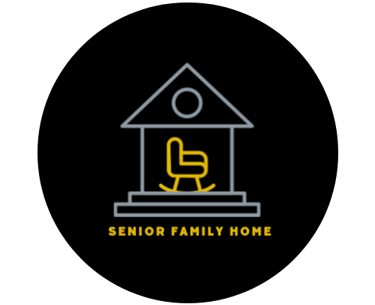Boosting Brain Health for Seniors: Essential Strategies for Cognitive Vitality


As we grow older, taking care of our bones and hearts often takes center stage. Yet, nothing is more precious than a sharp, engaged mind. Cognitive health for seniors—the ability to think clearly, learn new things, and remember fond moments—is the foundation for independence, meaningful connections, and everyday confidence. At Senior Family Home, we believe that every brain deserves nurturing, no matter your age.
What Really Happens to Our Brains Over Time
It’s normal to forget where you left your keys or pause mid-sentence hunting for the right word. These minor lapses reflect typical age-related changes: neural signals slow down, and multitasking becomes more challenging. But serious decline—like the inability to follow a recipe or get lost in familiar neighborhoods—isn’t a guaranteed part of aging. Lifestyle choices play a starring role in maintaining memory, focus, and problem-solving well into our 70s, 80s, and beyond.
Why Sooner Is Better: The Power of Early Brain Care
Think of your brain like a highway system. Frequent use keeps lanes clear and traffic flowing; neglect leads to potholes and slowdowns. Without mental workouts, the pathways that handle reasoning and memory can weaken. That makes everyday tasks—managing medications, balancing a checkbook, or even carrying on a conversation—feel riskier and more frustrating. And when cognition starts to slip, mood often follows: anxiety, sadness, and social withdrawal can creep in. Starting cognitive health for seniors routines early builds resilience, helping delay—or even prevent—conditions such as mild cognitive impairment (MCI) and certain types of dementia.
Proven Ways to Protect and Strengthen the Aging Brain
1. Move Your Body, Engage Your Mind
Gentle cardio—walking, swimming, or cycling—increases blood flow and delivers fresh oxygen to brain cells.
Mind–body exercises such as tai chi or chair yoga blend movement with mental focus. In fact, a recent NIA-funded study found that seniors practicing a modified tai chi routine saw real gains in memory performance over six months.
2. Challenge Yourself Daily
Puzzles galore: Crosswords, Sudoku, and jigsaw puzzles flex different thinking muscles.
Digital brain trainers: Apps like Lumosity or Peak adapt challenges to your current level and track improvement.
Mix it up: One day tackle a word puzzle, the next try a spatial reasoning game. Variety is the key to full-brain fitness.
3. Stay Socially Connected
Conversation is cardio for your mind: Chatting requires attention, word retrieval, and emotional insight—everything our brains love.
Group activities: Book clubs, board-game nights, or community choirs offer natural, fun ways to stay connected and mentally active.
4. Learn Something New
Hobbies reignite curiosity: Try watercolor painting, pick up a foreign phrasebook, or attend a virtual lecture on your favorite topic.
Neuroplasticity: Every time you learn a new skill, your brain forms fresh connections. Age doesn’t matter; your mind can grow at any stage of life.
5. Double-Dip with Combined Activities
Dance classes: Remembering steps while moving to music is a two-for-one brain boost.
Gardening: Planning beds, sensing textures, and bending to tend plants engage mind and body together.
Early cycling: A large-scale study of nearly half a million people showed that moderate cycling in midlife was linked to about a 19% lower risk of dementia later on.
How RCFEs Can Weave Brain Health into Daily Life
For RCFEs, cognitive health for seniors should be part of every day activities:
Brain-Boost Classes: Rotating puzzle clubs, “news flash” discussions, and memory-card tournaments keep things fresh.
Adaptive Materials: Large-print crosswords, color-coded memory cards, and user-friendly tablets make every game accessible.
Guided Mind–Body Sessions: Group tai chi, gentle chair yoga, and music-and-movement classes merge safety with mental challenge.
Lifelong-Learning Corners: Cozy nooks stocked with audiobooks, language apps, and craft kits invite residents to explore at their own pace.
Tips for Supporting a Loved One at Home
Families are the frontline for brain health, too. Here are gentle ways to make every day count:
Short, sweet sessions: Fifteen minutes of puzzles after breakfast is more effective than marathon afternoons.
Combine tasks: A stroll around the block becomes an exercise in observation when you name flowers or landmarks you pass.
Tech touchpoints: Schedule a daily video call to chat about news headlines and fond memories.
Celebrate milestones: Did your loved one finish a tough crossword? Recognize the win! Small successes build confidence and motivation.
Looking Ahead: A Future of Mental Vitality
Scientific research is clear: our brains remain capable of adaptation, growth, and resilience, even in our later decades. By weaving movement, challenge, and connection into daily life, seniors can safeguard their cognitive health and continue living with autonomy and joy.


